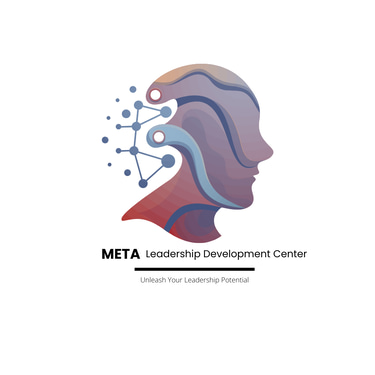
Setting the Foundation for Leadership Growth
Discover the essential steps to build a solid leadership foundation that will inspire your team and drive success—find out more inside.
Lori Pritchard
6/22/20244 min read
To set the foundation for your leadership growth, start with self-awareness. Recognize your strengths and weaknesses, and understand what drives you. Build emotional intelligence by managing your emotions and practicing empathy. Clear and effective communication is key, so listen actively and provide feedback regularly. Foster team collaboration by encouraging idea sharing and recognizing contributions. Embrace continuous learning: seek new knowledge through workshops, courses, and mentorship programs. By focusing on these areas, you'll inspire your team and drive success. Continue exploring to unlock deeper insights and strategies on your leadership journey.
Understanding Self-Awareness
Understanding self-awareness is crucial because it allows you to recognize your strengths and weaknesses. Knowing what you're good at and where you need improvement helps you make better decisions and grow both personally and professionally. Self-awareness enables you to understand your motivations and behaviors, providing a clearer picture of how you impact others. This insight is fundamental for effective leadership.
When you're self-aware, you can manage your actions and reactions more effectively. For example, if you know you tend to rush decisions when stressed, you can take steps to slow down and think things through. Moreover, self-awareness helps you stay grounded and authentic, allowing you to build trust and credibility with your team.
To develop self-awareness, start by reflecting on your experiences and seeking feedback from others. Journaling can be a powerful tool for this, enabling you to analyze your thoughts and actions objectively. Additionally, ask colleagues for their honest opinions about your behavior and performance. This feedback can provide valuable insights that you might overlook on your own.

Recognizing your own emotions and those of others forms the cornerstone of building emotional intelligence. By becoming more aware of how you feel in various situations, you can better manage your reactions and interactions.
Start by paying attention to your emotional triggers. When you identify what gets you excited, frustrated, or anxious, you can take steps to control these responses.
Understanding others' emotions is equally important. Practice empathy by putting yourself in their shoes. Observe their body language, listen to their tone of voice, and acknowledge their feelings. This helps build stronger relationships and fosters an environment of trust and support.
Developing emotional intelligence also involves regulating your emotions. When you're able to stay calm under pressure and handle conflicts with grace, you'll become a more effective leader. Techniques like deep breathing, mindfulness, and taking breaks can aid in maintaining emotional balance.
Lastly, motivate yourself by setting personal goals and maintaining a positive outlook. Recognizing your achievements and learning from setbacks will keep you driven and resilient.
Building Emotional Intelligence


Fostering Effective Communication
Effective communication is a cornerstone of successful leadership. It involves not only expressing your ideas clearly but also understanding and interpreting the messages of others. By fostering effective communication, you can build stronger relationships, enhance team collaboration, and drive better outcomes.
Active listening is a key component of effective communication. This means fully concentrating on what the other person is saying rather than just passively hearing their words. Active listening involves nodding, maintaining eye contact, and providing feedback, such as paraphrasing or asking questions. This not only shows that you value the speaker’s input but also helps you understand their perspective more deeply.
Creating an environment where open dialogue is encouraged is vital for effective communication. Make it clear that all team members are welcome to share their ideas, concerns, and feedback. Use tools like email, instant messaging, and video conferencing to stay connected with your team. By fostering a culture of open communication, you enhance your leadership effectiveness and drive better outcomes for your team and organization.

Cultivating a growth mindset is essential for ongoing leadership development. A growth mindset encourages you to view challenges as opportunities for learning and improvement. By embracing this perspective, you can foster resilience and adaptability, crucial traits for effective leadership in today’s ever-changing environment.
Leaders with a growth mindset are open to feedback and see it as a tool for growth rather than criticism. They encourage their teams to take on new challenges, learn from failures, and continuously seek improvement. This attitude not only enhances individual development but also drives innovation and progress within the organization.
To cultivate a growth mindset, focus on setting learning goals alongside performance goals. Encourage yourself and your team to step out of comfort zones and pursue new skills and experiences. Celebrate efforts and learning processes, not just outcomes. By promoting a culture of growth and development, you can inspire your team to reach their full potential and achieve lasting success.
Cultivating a Growth Mindset


By building self-awareness, enhancing emotional intelligence, fostering effective communication, and cultivating a growth mindset, you lay a strong foundation for leadership growth. To put these principles into practice, here are three actions you can take today:
Reflect on your recent experiences and identify key learnings. Write these down and consider how they can guide your future actions.
Seek feedback from a trusted colleague about your communication style and areas for improvement. Use this feedback to enhance your interactions.
Set a personal learning goal for the next month. Whether it's reading a leadership book, attending a workshop, or practicing a new skill, commit to continuous growth.
For more leadership tips and strategies, subscribe to our YouTube channel, S.O.S: Promotion Recovery, at this link.
Predict the future by creating it
You didn’t come this far to stop
Ready to transform your leadership approach?
Do you want to empower your team but don’t know how?
Ready to change the way you connect with the world around you?



